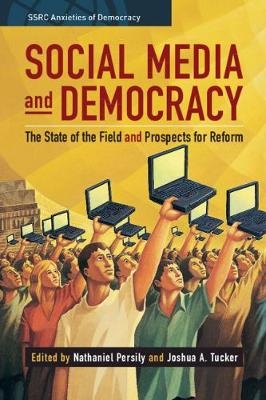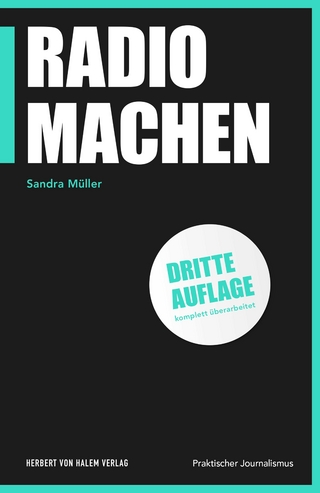
Social Media and Democracy
Cambridge University Press (Verlag)
978-1-108-81289-4 (ISBN)
Over the last five years, widespread concern about the effects of social media on democracy has led to an explosion in research from different disciplines and corners of academia. This book is the first of its kind to take stock of this emerging multi-disciplinary field by synthesizing what we know, identifying what we do not know and obstacles to future research, and charting a course for the future inquiry. Chapters by leading scholars cover major topics – from disinformation to hate speech to political advertising – and situate recent developments in the context of key policy questions. In addition, the book canvasses existing reform proposals in order to address widely perceived threats that social media poses to democracy. This title is also available as Open Access on Cambridge Core.
Nathaniel Persily is the James B. McClatchy Professor of Law at Stanford Law School and the Co-Director of the Stanford Cyber Policy Center and Stanford Project on Democracy and the Internet. His scholarship focuses on the law and technology of democracy. Joshua A. Tucker is Professor of Politics, affiliated Professor of Russian and Slavic Studies, and affiliated Professor of Data Science at New York University. He is the Director of NYU's Jordan Center for Advanced Study of Russia, a co-Director of the NYU Center for Social Media and Politics, and a co-author/editor of the award-winning politics and policy blog The Monkey Cage at The Washington Post.
1. Introduction Nathaniel Persily and Joshua A. Tucker; 2. Misinformation, Disinformation, and Online Propaganda Andrew M. Guess and Benjamin A. Lyons; 3. Social Media, Echo Chambers, and Political Polarization Pablo Barbera; 4. Online Hate Speech Alexandra A. Siegel; 5. Bots and Computational Propaganda: Automation for Communication and Control Samuel C. Woolley; 6. Online Political Advertising in the United States Erika Franklin Fowler, Michael M. Franz, and Travis N. Ridout; 7. Democratic Creative Destruction? The Effect of a Changing Media Landscape on Democracy Rasmus Kleis Nielsen and Richard Fletcher; 8. Misinformation and Its Correction Chloe Wittenberg and Adam J. Berinsky; 9. Comparative Media Regulation in the US and Europe Francis Fukuyama and Andrew Grotto; 10. Facts and Where to Find Them: Empirical Research on Internet Platforms and Online Speech Daphne Keller and Paddy Leerssen; 11. Dealing with Disinformation: Evaluating the Case for CDA 230 Amendment Tim Hwang; 12. Democratic Transparency in the Platform Society Robert Gorwa and Timothy Garton Ash; 13. Conclusion: The Challenges and Opportunities for Social Media Research Nathaniel Persily and Joshua A. Tucker.
| Erscheinungsdatum | 24.08.2020 |
|---|---|
| Reihe/Serie | SSRC Anxieties of Democracy |
| Zusatzinfo | Worked examples or Exercises |
| Verlagsort | Cambridge |
| Sprache | englisch |
| Maße | 230 x 155 mm |
| Gewicht | 550 g |
| Themenwelt | Sozialwissenschaften ► Kommunikation / Medien ► Journalistik |
| Sozialwissenschaften ► Kommunikation / Medien ► Kommunikationswissenschaft | |
| Sozialwissenschaften ► Politik / Verwaltung ► Staat / Verwaltung | |
| Sozialwissenschaften ► Politik / Verwaltung ► Vergleichende Politikwissenschaften | |
| Wirtschaft | |
| ISBN-10 | 1-108-81289-9 / 1108812899 |
| ISBN-13 | 978-1-108-81289-4 / 9781108812894 |
| Zustand | Neuware |
| Haben Sie eine Frage zum Produkt? |
aus dem Bereich


